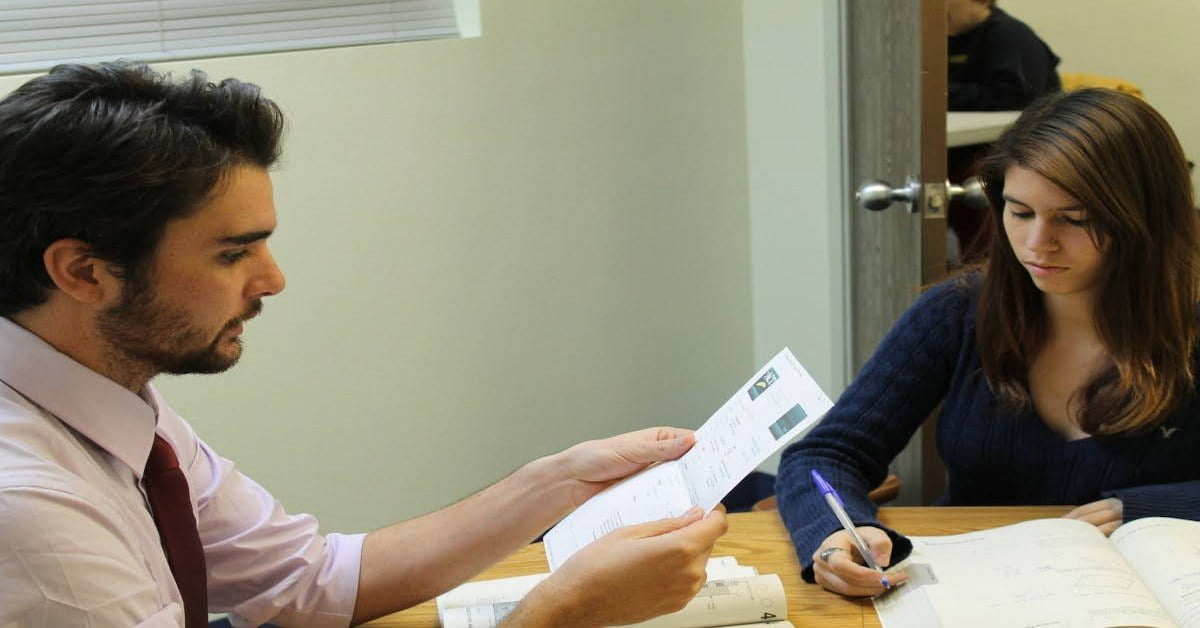College essays, after-school tutoring sessions, and test preparations are some of the many pieces that make up the intricate puzzle of preparing teenagers for success in higher education. The journey from high school to college can be exciting and daunting for parents, educators, and students. High school serves as the launching pad for this journey; within it, the right university preparation program in high school stands as the guiding light.
Understanding University Preparation Programs
University preparation programs are designed to equip students with the necessary skills, knowledge, and mindset required to excel in higher education. These programs serve as a bridge between high school and college, helping students transition smoothly while ensuring they are adequately prepared academically and personally.
The university preparation program also focuses on providing a well-rounded education, building critical thinking and problem-solving skills, and guiding students through the complexities of college admissions. University preparation programs are a crucial stepping stone in a student’s journey toward a successful and fulfilling university experience.
The Role of High School in University Preparation
High schools play a crucial role in preparing students for the challenges of college. Comprehensive academic programs, skill-building courses, and valuable guidance help students develop the competencies and confidence they need to thrive in higher education.
By meeting essential entry requirements, acquiring foundational knowledge, and honing critical life skills, high school students gain a solid footing for the demands of university life and beyond. Here’s how high schools help prepare students for the challenges of college:
1. Comprehensive Curriculum
High schools offer a curriculum that covers core subjects, advanced courses, and elective options, providing students with a well-rounded education. This curriculum typically includes mathematics, science, literature, history, and the arts, ensuring students develop a strong academic foundation.
This broad understanding of various disciplines enables students to pursue various degree programs at university. Additionally, the comprehensive curriculum helps students acquire critical thinking and problem-solving skills essential for excelling in university courses, which often require interdisciplinary thinking.
Read more: The Importance of Growth Mindset for Learning
2. College-Preparatory Courses
Many high schools offer specialized college-preparatory courses designed to challenge students academically and introduce them to college-level material. These courses, including Advanced Placement (AP), International Baccalaureate (IB), and honors courses, vary in structure and rigor but provide students with an invaluable preview of university academics.
College-preparatory courses provide students with a more rigorous academic experience, helping them develop higher-level thinking, research skills, and the ability to handle the demands of university-level coursework.
These courses also often provide college credit, which reduces the number of semesters or courses required for their degree, allowing students to save on tuition costs or enter advanced standing programs. By taking advantage of these courses, students gain a competitive edge in college admissions and demonstrate their commitment to pursuing their education at the maximum level.
3. Guidance and Counseling
High schools provide guidance and counseling services to help students make informed decisions about their college and career paths. These services often include support with college applications, understanding degree and qualification requirements, exploring scholarship opportunities, and navigating financial aid options.
Counselors advise students to select courses that align with their university aspirations, take standardized tests, and fulfill language proficiency requirements, especially for students applying to international universities.
Guidance counselors also work with students to create personalized academic and career plans, ensuring students are prepared to meet their educational goals. This support is invaluable for all students, including mature-age students returning to education who may need assistance re-entering the academic system.
4. Extracurricular Activities
Encouraging students to participate in extracurricular activities—such as sports, clubs, internships, and community service—is a common and impactful practice in high schools. These activities contribute to students’ personal growth, help them develop teamwork and leadership skills, and improve their readiness for the challenges of college life.
Universities value applicants who show a strong record of extracurricular involvement. These students are often well-rounded and resilient, which are vital qualities for success in higher education and beyond. Many universities also offer credits or considerations for specific extracurricular achievements, which can contribute toward degree requirements.
Participation in extracurricular activities also aids in character development and can distinguish students in competitive college admissions processes, as universities seek to build diverse communities that reflect a broad spectrum of talents and interests.
What to Consider When Choosing a School with a University Preparation Program
Several key factors can significantly impact their academic journey when searching for a university preparation program for your child. Here’s what you should look for:
1. Experienced Counselors
Seek out high schools with reputable and, if possible, certified counselors, such as the ones you can find at Sekolah Pelita Harapan (SPH). Experienced professionals can provide personalized guidance tailored to each student’s needs and aspirations.
They will help the students explore their academic interests, strengths, and aspirations and align them with suitable universities and majors. As a parent, you need to make sure that your child has experienced and compassionate school counselors who will help them navigate the university preparation process.
2. Comprehensive Assessments
The program should offer in-depth assessments to help students identify their strengths, interests, and long-term career goals. This self-awareness is crucial in making informed decisions. The assessments also must go beyond traditional grades and standardized test scores.
They encompass a range of evaluations that consider a student’s academic strengths, areas for improvement, learning styles, and career interests. The results of these assessments will guide the development of an individualized plan that addresses each student’s specific needs and helps them reach their full potential.
3. College Selection Support
An effective program should assist students in selecting universities and programs that align with their passions, career aspirations, and academic abilities.
This guidance may involve considerations like the institution’s academic reputation, location, available majors, campus culture, and financial aspects. University or career counselors will assist students in finding the best fit for their academic and career goals.
4. Application Guidance
Navigating the college application process can be overwhelming, especially for first-time applicants. That’s why you have to look for a program that guides students through every step of the university application process, from essay writing and resume building to interview preparation. The goal is to help students present themselves to university admissions committees in the best possible light.
5. Scholarship Assistance
Financial considerations are a significant factor in a student’s university journey. Therefore, a valuable program should provide information on scholarship opportunities and offer guidance on how to succeed in securing them.
6. Personalized Career Planning
Outstanding university preparation programs consider each student’s long-term goals and potential career paths when helping them choose majors and universities. This process considers factors such as chosen majors, internships, co-op programs, and long-term career aspirations.
By helping students set clear objectives, schools enable them to make informed decisions about their educational journey and ensure their academic choices align with their desired careers.
7. Emotional Support
Emotional support is a vital element of any university preparation program. Knowing that a counselor personally connects with your child, provides dedicated emotional support, and assists them during the challenges of the application process is reassuring.
By addressing the emotional well-being of students, schools ensure they are better equipped to handle the pressures of higher education, leading to overall success.
8. Parent Involvement
A program that encourages parent involvement can help you better understand your child’s passions, potential, growth, and aspirations. This collaboration includes regular meetings, workshops, and discussions that keep parents informed about their child’s academic journey.
Regular updates and active participation in the counseling process can ensure your child receives the proper support they need for their educational journey. As a parent, this will also help you to understand your child’s goals better when choosing a major and campus.
Read more: The Importance of Parent Involvement in Education
9. Success Rates
Evaluating a school’s success rates is important in helping your child find the best place to study at. A high success rate shows that the school has a good track record in helping its students gain admission to top universities. Additionally, a high success rate not only reflects the school’s commitment to academic excellence but also provides reassurance that their child will receive quality support in achieving their academic aspirations.
The Importance of Personalized Programs
A university preparation program that tailors its approach to each student’s individual needs and aspirations can be transformational. Here are some reasons why personalized university preparation programs are essential:
1. Individualized Guidance
Personalization ensures that students receive guidance that aligns with their unique strengths, interests, and long-term goals. Trained counselors work closely with students to create a tailored plan that outlines the necessary steps to achieve their goals.
They help students select suitable courses, extracurricular activities, and resources that align with their unique path. This individualized support ensures that students are well-prepared and confident as they enter the challenging higher education environment.
2. Greater Confidence
One of the key benefits of personalized programs is the boost in students’ confidence. It empowers them to make informed decisions about their academic and career pathways, ultimately leading to greater confidence and success as they embark on their higher education journey.
They are more likely to embrace challenges and opportunities as they know they have a personalized plan to navigate them. This confidence is a crucial asset as students embark on their university journey, where self-assurance is often a determining factor for success.
3. Optimizing Potentials
A personalized program is key to helping students reach their full potential and achieve their dreams. They focus on identifying and nurturing a student’s unique talents and abilities, whether academic, artistic, leadership, or community-oriented.
By emphasizing personal strengths and interests, these programs encourage students to excel in areas where they have a natural aptitude.
This optimization of potential enhances a student’s academic performance and prepares them for future career success by aligning their academic choices with their inherent talents.
4. Enhanced Motivation and Engagement
Personalized university preparation programs significantly boost students’ motivation and engagement by aligning learning experiences with their individual interests and goals. When students perceive the direct relevance of their studies to their future aspirations, they are more likely to be enthusiastic and committed to their education. This tailored approach not only identifies students’ preferred learning styles but also adapts teaching methods accordingly, be it through project-based learning, interactive workshops, or practical experiences. Actively engaged students retain information better and achieve a deeper understanding of the subject matter.
What sets Sekolah Pelita Harapan (SPH) apart from many other institutions is our unwavering commitment to personalized university preparation. We recognize that not all schools can provide such individualized programs.
Thus, at SPH, we offer a unique and transformative one-to-one counseling program that extends throughout a student’s high school journey. This personalized approach prepares students both academically and mentally and strategically for the challenges of university application and the path beyond.
Our dedicated counselors work closely with each student, fostering self-awareness, guiding them in making well-informed decisions, and providing emotional support. This level of personalization ensures that our students reach their full potential and embark on their higher education journey with confidence and clarity, setting them up for future success.
Conclusion
University preparation programs serve as guiding lights, illuminating the way for students to navigate the complexities of the academic world beyond high school. These programs offer a bridge, smoothing the often bumpy transition between high school and college, equipping students with essential skills, knowledge, and the right mindset for their higher education adventure. In short, choosing the right university preparation program is one pathway to college success.
The role of high schools in this process cannot be overstated. They provide the canvas upon which these critical early steps are painted. High schools lay the foundation for the success of our youth, fostering well-rounded individuals who are prepared for the unique challenges and opportunities that college life presents.
As parents and educators, we must consider the critical components that make up a strong university preparation program. The experienced counselors, comprehensive assessments, personalized guidance, and emotional support they provide can set the stage for a seamless transition. It’s also crucial to remember that parent involvement and strategic events can further enhance the journey.
In pursuing academic excellence and future success, let us continue to emphasize the importance of a well-rounded, personalized, and well-supported university preparation program. The destination is the future, and it’s within reach for every aspiring student, guided by the wisdom of their high school years.
If you are looking for a school that can prepare your child for university and beyond, explore Sekolah Pelita Harapan (SPH) today! Learn more about our IB School program through a holistic approach and personalized support by visiting our website today!











